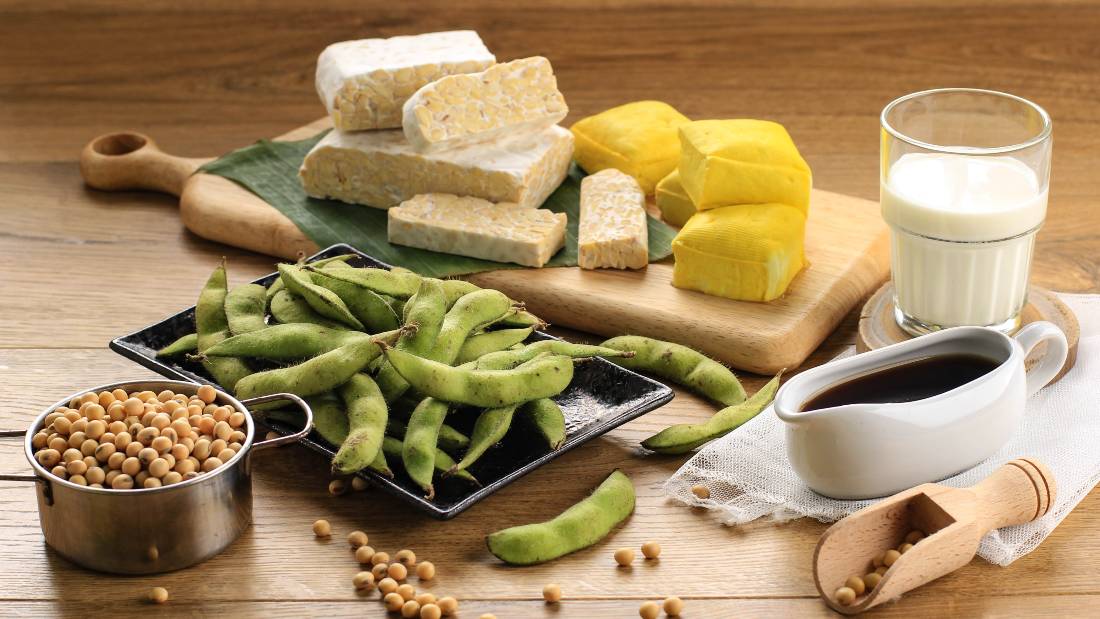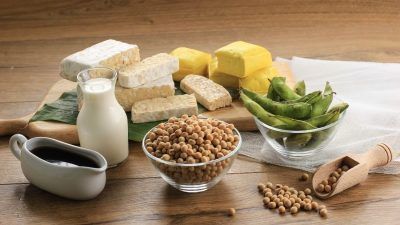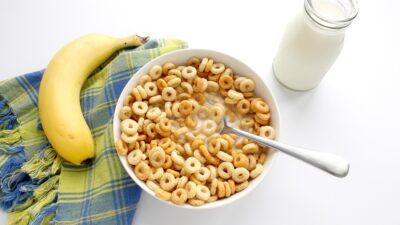6 reasons soya is super healthy

Few foods are as misrepresented and misunderstood as soya. Most of the concerns come from outdated animal studies. It does not have feminising effects in men or have any deleterious effects on hormones. The truth is, soya is an extremely healthful food with many benefits.
1. Soya is good for bones
Many don’t realise it, but the hormone oestrogen plays an important role in maintaining strong, healthy bones. That’s why postmenopausal women lose bone density and are more susceptible to osteoporosis as their oestrogen levels decrease. Oestrogen is just as important to men’s bone health – men have an enzyme (aromatase) which converts testosterone to oestrogen. As men age, they tend to produce less testosterone, albeit at a much slower and steadier rate than women’s loss of oestrogen, but this can still affect bone density. This is where the phytoestrogens (plant hormones similar to oestrogen) in soya comes in.
Studies show that the consumption of soya foods may decrease bone loss and help the formation of stronger bones. One study compared soya protein and dairy milk protein and found that soya protein “may positively influence bone and calcium homeostasis in postmenopausal women, particularly those not on HRT.” Another 2020 study found that “women who drink soy milk one or more times per day are 56% less likely to develop osteoporosis than women who do not drink soy milk.”
In addition to the naturally-occurring phytoestrogens, many soya products are also fortified with calcium – an important mineral for bone health – such as calcium-set tofu and dairy alternatives such as soya milk and yoghurts.
2. Soya may reduce breast cancer risk and recurrence
Because soya contains phytoestrogens, some people mistakenly think that this can cause breast cancer. Actually, the opposite is true. Evidence suggests that when women consume soya and soya products early in life and throughout adulthood, breast cancer risk is reduced. This is thought to be due to the ‘chemopreventive’ properties of the isoflavones found in soya. A 2022 meta-analysis concluded: “The consumption of soy isoflavones can reduce the risk of breast cancer in pre-menopausal and post-menopausal women.”
Not only can soya reduce the risk of breast cancer arising in the first place, but it can also reduce the risk of recurrence in those who have previously had it:
“Prospective epidemiologic studies involving over 11,000 women from the USA and China show that post-diagnosis soy [sic] intake statistically significantly reduces recurrence and improves survival.”
3. Soya lowers cholesterol and risk of heart disease
Soya is high in ‘good’ polyunsaturated fats (including omega-3 and -6) and has been shown to lower cholesterol and therefore reduce the risk of heart disease and heart attacks. Saturated fats (SFAs) from animal products and tropical oils (palm and coconut oil), however increase cholesterol and the risk of heart disease. A 2021 scientific review in the journal Nutrition, concluded that:
“Clinical evidence indicates that soybean oil does not affect inflammatory biomarkers, nor does it increase oxidative stress. On the other hand, it has been demonstrated that when dietary SFAs are replaced with soybean oil, blood cholesterol levels are lowered (…) Thus, several lines of evidence indicate that soybean oil can positively contribute to overall health and reduction of risk of coronary heart disease.”
4. Soya is a great source of protein
The concern for obtaining adequate protein on a plant-based diet is certainly overblown, but nonetheless protein is an important nutrient – especially for building muscle and maintaining it as we age. But fear not, it is easy to get enough protein without eating animal products and soya is a great source. 100 grams of fried tofu contains about 24 grams of protein. Although all plants contain protein, not all contain all the essential amino acids we need, which is why we need to eat a varied diet. However, soya contains all eight essential amino acids (protein building blocks) our body needs for healthy growth and repair.
5. Soya may reduce menopausal symptoms
As previously mentioned, soya can help both men and women maintain healthy bones but it has also been shown to reduce the severity and duration of hot flushes in menopausal women. A 2014 meta-analysis and systematic review looked at ten studies of soya and hot flushes and found that soya consumption reduced hot flushes by 11 per cent.
In a 2018 randomised clinical trial, involving 204 women, the researchers gave half of the women isoflavones found in soya and the other half a placebo. They found that a “daily intake of 50 mg isoflavone not only reduces the number and severity of hot flushes but also is safe for endometrial and breast tissue.” This makes it soya an attractive option for those who can’t or would rather not take HRT.
6. Soya is great for digestion
Soya is a high-fibre food which makes it great for our gut health. A study published in The Lancet in 2019, pooling the results from 243 studies, found a very strong relationship between high fibre intakes and better health outcomes. They found that 25 grams or more of fibre a day was linked to lower weight, blood pressure, blood sugars and cholesterol and a lower risk of developing (or dying from) diabetes, heart disease, strokes and breast or bowel cancer. They said that intakes in the range of 25-29 grams daily are adequate but suggested that amounts greater than 30 grams a day confer even more benefits.
Don’t let the scare stories steer you away from soya – it’s soy good for you! And if you avoid soya because of the environmental concerns, remember, it’s the soya grown for animal feed causing the destruction of the Amazon rainforest and the small amount (less than 10 per cent) of soya grown for human consumption in the UK usually comes from Europe or Canada.







